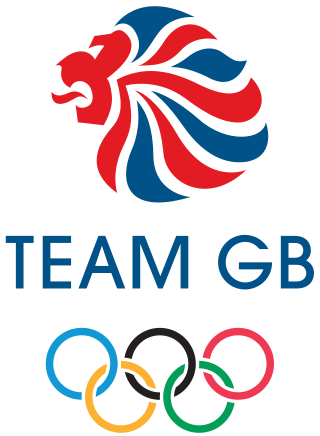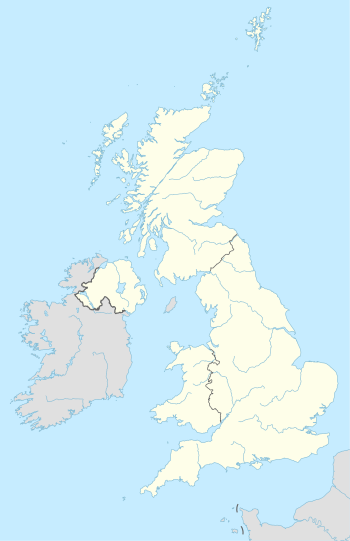
Football at the Summer Olympics, also referred to as the Olympic Football Tournament, has been included in every Summer Olympic Games as a men's competition sport, except 1896 and 1932. Women's football was added to the official program at the Atlanta 1996 Games.

The United Kingdom national football team are a football team that represents the United Kingdom. Despite football being the most popular sport in the country, the team has not played since 1965 as separate teams represent each home nation in all major international football tournaments such as the FIFA World Cup and UEFA European Championship, as well as various friendlies. It is the home nations which are FIFA affiliated and not the United Kingdom as a whole.
The Japan women's national football team, commonly known as Nadeshiko Japan (なでしこジャパン), represents Japan in women's association football and is run by the Japan Football Association (JFA). The only country to win every FIFA competition and the most successful women's national team in the Asian Football Confederation, its highest ranking in the FIFA Women's World Rankings is 3rd, achieved in December 2011.

The Democratic People's Republic of Korea women's national football team represents North Korea in international women's football.

Canada, represented by the Canadian Olympic Committee (COC), competed at the 2012 Summer Olympics in London, United Kingdom, from 27 July to 12 August 2012. Canadian athletes have competed in every Summer Olympic Games since 1900, except the 1980 Summer Olympics in Moscow because of the country's support for the United States-led boycott. Canada sent a total of 281 athletes to the Games to compete in 24 sports. With the initiation of its "Own the Podium" programme, the COC set a goal of finishing in the top 12 for total medals; but the nation came up short of this goal, finishing 13th in the medal standings. Canada matched its total medal count from Beijing 2008, finishing the event with 18 medals: two gold, six silver and 10 bronze.

The Great Britain Olympic football team was the men's football team that represented the United Kingdom at the Summer Olympic Games. The team was organised by the Football Association as the men's footballing representative of the British Olympic Association. The team only competed in the Olympic Games. In other international football tournaments, the Home Nations of the United Kingdom are represented by their own national teams, a situation which pre-dated the establishment of a GB team.

France competed at the 2012 Summer Olympics in London, between 27 July and 12 August 2012. French athletes have competed in every Summer Olympic Games of the modern era. The French Olympic Committee sent a total of 330 athletes to the Games, 183 men and 147 women, to compete in 24 sports.

Great Britain and Northern Ireland, represented by the British Olympic Association (BOA), competed at the 2012 Summer Olympics in London, United Kingdom, from 27 July to 12 August 2012 as the host nation and the team of selected athletes was officially known as Team GB. British athletes have competed at every Summer Olympic Games in the modern era, alongside Australia, France and Greece, though Great Britain is the only one to have won at least one gold medal at all of them. London is the first city to host the Summer Olympics on three different occasions, having previously done so in 1908 and 1948. Soon, it will be joined by Paris in 2024 and Los Angeles in 2028 in hosting the Olympic Games for a third time. Team GB, organised by BOA, sent a total of 541 athletes, 279 men and 262 women, to the Games, and won automatic qualification places in all 26 sports.

Spain competed at the 2012 Summer Olympics in London, from 27 July to 12 August 2012. This nation has competed in all but two Summer Olympic Games since its official debut in 1920. Spain boycotted two editions, the 1936 Summer Olympics in Nazi Germany and the 1956 Summer Olympics in Melbourne, as a protest against the Soviet invasion of Hungary. In 2012, the Spanish Olympic Committee sent the nation's smallest delegation to the Games since 1988. A total of 278 athletes, 166 men and 112 women, competed in 23 sports.

The 2015 FIFA Women's World Cup was the seventh FIFA Women's World Cup, the quadrennial international soccer championship contested by the women's national teams of the member associations of FIFA. The tournament was hosted by Canada for the first time and by a North American country for the third time. Matches were played in six cities across Canada in five time zones. The tournament began on 6 June 2015, and finished with the final on 5 July 2015 with a United States victory over Japan.

Brazil competed at the 2012 Summer Olympics in London, from 27 July to 12 August 2012. This was the nation's twenty-first appearance at the Summer Olympics, having missed the 1928 Summer Olympics in Amsterdam. The Brazilian Olympic Committee sent a total of 258 athletes to the Games, 136 men and 122 women, to compete in 24 sports. Brazil left London with a total of 17 Olympic medals, winning their third largest number of medals at a single games.

New Zealand competed at the 2012 Summer Olympics in London, from 27 July to 12 August 2012. This was the nation's twenty-fourth appearance at the Olympics. The New Zealand Olympic Committee sent 184 athletes, 97 men, and 87 women to the Games to compete in 16 sports, the nation's largest ever delegation.

South Korea competed at the 2012 Summer Olympics in London, from July 27 to August 12, 2012. This was the nation's sixteenth appearance at the Olympics, having missed the 1980 Summer Olympics in Moscow because of its support for the United States boycott. The Korean Olympic Committee sent the nation's smallest delegation to the Games since 1992. A total of 248 athletes, 135 men and 113 women, competed in 22 sports.

Park Jong-woo is a South Korean football player, who currently plays for Busan IPark as a midfielder. He has previously played for the Chinese club Guangzhou R&F and also in the UAE Arabian Gulf League for Al Jazira and Emirates. He has represented South Korea at age group and senior level, including the Men's tournament at the 2012 Summer Olympics, and was part of the South Korean squad for 2014 FIFA World Cup in Brazil.

The Great Britain women's Olympic football team represent the United Kingdom in the women's football tournament at the Olympic Games. Normally, no team represents the whole of the United Kingdom in women's football, as separate teams represent England, Scotland, Wales and Northern Ireland.
The men's football tournament at the 2012 Summer Olympics was held in London and five other cities in Great Britain from 26 July to 11 August. Associations affiliated with FIFA were invited to enter their men's U-23 teams in regional qualifying competitions, from which 15 teams, plus the hosts Great Britain, reached the final tournament. Men's teams were allowed to augment their squads with three players over the age of 23. It was the first men's Olympic football tournament to feature a team representing Great Britain since the 1960 Summer Olympics in Rome. The competition also marked Uruguay's men's football team's first Olympic appearance since 1928, when it won its second consecutive gold medal.

The women's football tournament at the 2012 Summer Olympics was held in London and five other cities in the United Kingdom from 25 July to 9 August. Associations affiliated with FIFA were invited to enter their women's teams in regional qualifying competitions, from which 11 teams, plus the hosts Great Britain reached the final tournament. There are no age restrictions for the players participating in the tournament. It is the first major FIFA affiliated women's tournament to be staged within the United Kingdom, and marked the first time a team representing Great Britain took part in the women's tournament.
A number of controversies and concerns associated with the 2012 Summer Olympics in London became the subject of public debate and media commentary.

The women's football tournament at the 2020 Summer Olympics was held from 21 July to 6 August 2021. Originally, it was to be held from 22 July to 7 August 2020, but the Summer Olympics were postponed to the following year due to the COVID-19 pandemic. However, the official name of the games remains the 2020 Summer Olympics. It was the seventh edition of the women's Olympic football tournament. Together with the men's competition, the 2020 Summer Olympics football tournament was held at six stadiums in six cities in Japan. The final was hosted at the International Stadium in Yokohama. There were no player age restrictions for teams participating in the competition.
The women's football tournament at the 2020 Summer Olympics in Tokyo, Japan was held from 21 July to 6 August 2021. The women's tournament is a full international tournament with no restrictions on age. The twelve national teams involved in the tournament were required to register a squad of 18 players, including two goalkeepers. Additionally, teams could name a maximum of four alternate players, numbered from 19 to 22. The alternate list could contain at most three outfielders, as at least one slot was reserved for a goalkeeper. In the event of serious injury during the tournament, an injured player would be able to be replaced by one of the players in the alternate list. Only players in these squads were planned to be eligible to take part in the tournament. On 2 July, FIFA confirmed that there was a change for the 2020 Olympics, allowing all 22 players named to be available on the roster, with 18 being named for each match. This change was implemented due to the challenges of the COVID-19 pandemic. The official squad lists were released by FIFA on 7 July 2021, with the athletes originally named as alternates assigned the numbers 19 through 22. The IOC also confirmed that a player must appear on at least one 18-player matchday roster to be considered an Olympian and to receive a medal.






















